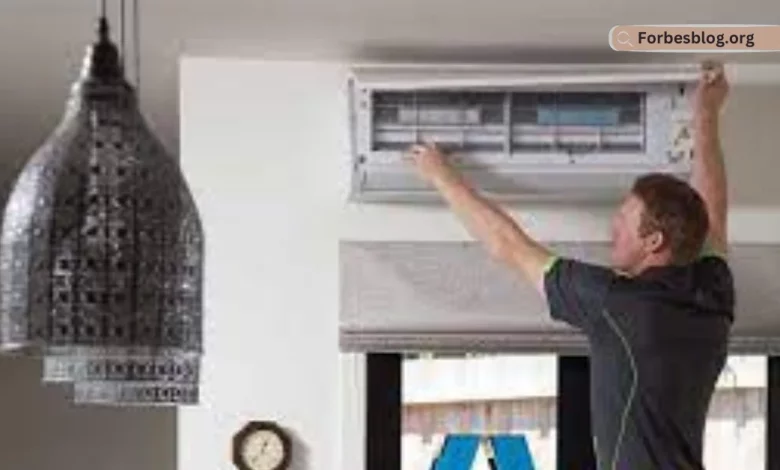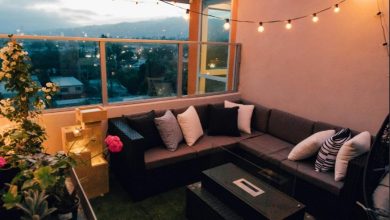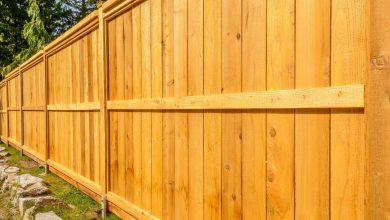Is Evaporative Cooling Or Air Conditioning More Suitable For An Australian Summer?

A recent discovery by the Australia Institute has only further emphasised the importance of cooling systems to the citizens during the summer.
The institute, in its 2020 weather data analysis, found out that summer across most of the country over the past two decades was about a month longer than in the mid-20th century. The summers were particularly 50% longer between 2014 and 2018.
So for you as an Aussie, it’s a case of life being too short and the summer being too long to go without a cooling system in your home. And after you see the need for a cooling system during the summer, the issue of choice comes in. Which will you go for? Is it an air conditioner? Or an evaporative cooler? Or to you, are the differences between them a matter of mere nomenclature?
This discourse delves into its main focus, which is, ‘Is evaporative cooling or air conditioning more suitable for an Australian summer?’
Table of Contents
The Contemporary Australian Summer
To put the question into proper perspective, there is the need to provide an insight into what the summer of contemporary Australia looks like. The emission of carbon pollution per capita remains very high in Australia as it is still heavily reliant on coal-fired power. This underlines the reason why temperatures during the summer in recent years have been longer, compared to the 1950s and 1960s.
A case in point is the town of Port Macquarie in New South Wales which is experiencing even more drastic changes to the length of seasons, with seven more weeks of traditional summer temperatures than in the mid 20th century.
Evaporative Cooling And Air Conditioning
Evaporative cooling runs without the use of artificial refrigerants and delivers natural, healthy, and clean air at low energy consumption.
One of the major features of evaporative cooling systems is their efficiency in hot dry climates with low humidity because the air has the ability to absorb water vapour. Evaporative coolers or swamp coolers appear the natural choice in the Australian summer which can be as hot as 35 °C (95 °F).
Ancient Greeks, Romans, and Egyptians made most of (primitive) evaporative coolers to get rid of heat in their homes by hanging wet mats in front of window and tent openings. The hot air blowing through the mats then helped keep inside air at a reasonable temperature.
Air conditioners, on the other hand, expel warm air from outside the house and transfer it outside, cooling the air to a temperature set by a thermostat. There are different types of air conditioners and these are listed below.
- Portable air conditioners: They are single units that plug into a PowerPoint which can cool a room of about 20m2.
- Wall/window conditioners: They are usually installed in a window or external wall, and can cool rooms and open-plan areas of up to 50m2.
- Split-system conditioners: They are the most popular type of conditioners in Australia with a compressor unit installed outside and one more indoor air outlet.
- Ducted air conditioning systems: They have a central unit, usually in the roof, connected by ducts to air outlets and sensors in each room, and the compressors located outside.
- Reverse-cycle air conditioners: They can heat as well as cool your home throughout the year without the need for a separate heating system.
Between Evaporative Cooling And Air Conditioning
Hello, I hope you are still with me? Ok then, let’s go on. In tandem with the topic of this discourse, it becomes expedient at this point to take a look at the different features of both the evaporative cooling and air conditioning systems into consideration, to know which serves you better and in what manner.
1. Fresh Clean Air
If your emphasis is on which cooling system is able to provide you with fresh clean air, the evaporative cooling system is your best bet. The reason for this is the fact that it brings in air from outside through a filter that helps you remove dust and potential allergens, which ordinarily, would be a concern to you if you are allergic to airborne allergens.
2. Energy Efficiency
By virtue of the fact that evaporative coolers work through a fan and water pump, it uses less power than most cooling systems. However, the refrigerated air conditioning system needs a whole lot of power to maintain the refrigerated cooler. This, unfortunately, comes at a cost higher than what would be needed for an evaporative cooling system.
3. Eco Friendly
If the consideration is on a unit that will minimise the emission of carbon dioxide, your choice, then, will be the evaporative cooling device. The use of water and fan ensures that the level of carbon dioxide emission remains comparatively low.
4. Adaptation To Diverse Weather Conditions
While air conditioners may be able to adapt to different weather conditions, evaporative cooling systems may not be able to do the same. In actual fact, swamp coolers are limited as they are easily affected by the weather. For instance, since the ducted evaporative cooler makes use of outside air, it does not and cannot work in humid climates. Evaporative cooling is more at home in Melbourne which weather conditions many people find more enjoyable all through the year. It is unlike the air conditioner which is independent of the weather irrespective of the changing conditions.
5. Noise
The outdoor unit of the air conditioner can be noisy and this may pose a nuisance for your neighbors, some of whom may be allergic even to minimal noise. Repositioning the system may bring a middle ground relief, but it could also be denying you as the owner the maximum enjoyment of its maximum services.
6. Potential Water Scarcity
While your refrigerated system does not need a steady water supply to function, it is the lifeblood of the evaporated unit. However, water scarcity is a potential headache in Australia. For instance, the government of New South Wales, in September, released a draft strategy on the future water supply for Greater Sydney. Already, the prediction is that the city faces a 13% shortfall in its water supply within 20 years if it continues to grow at its current rate. On a general note, the river system in Australia is edging towards collapse thanks to climate change and industrial farming.
Obviously, the pros and cons of evaporative cooling and air conditioning are evenly matched. However, apart from the factors listed in this article, some others – largely based on your personal preferences or orientation – may still come into play while deciding on which cooling system you should purchase. It is at your discretion as an individual to go for any system of your choice.
VISIT FOR MORE ARTICLE : forbesblog.org




